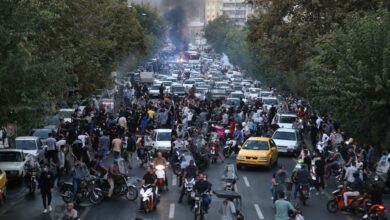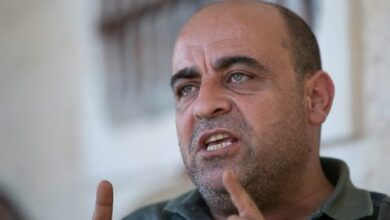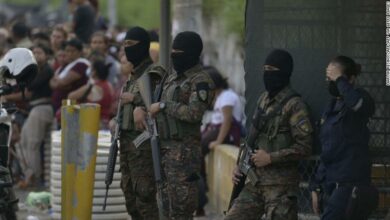In the wake of the New Year’s Eve bombings, police forces have unleashed a massive security response in Alexandria, detaining a still-uncertain number of people–most of whom are reportedly members of local Salafi Muslim groups. Such wide-ranging roundups of “usual suspects” are fairly routine here–particularly in the wake of major terrorist incidents. But what is unusual this time is the veil of silence thrown over the situation by police, who have threatened detainees’ families, according to local lawyers and human rights organizations.
“They tell the families that if they talk, they won’t see their relatives ever again,” said Sobhi Saleh, an Alexandria lawyer and former Muslim Brotherhood parliamentarian who said he has been trying–with little success–to offer legal representation to families of detainees.
“This is unprecedented. Nothing like this has happened before, not even in the Khaled Saeed case,” said Malik Adel of the Hisham Mubarak Law Center, one of several human rights advocacy groups attempting to address the situation in Alexandria. “This time the behavior of the security is very different.”
Details of those detained and whether they have been charged remain sketchy. Local organizations are still trying to pin down the exact number of people being detained. One Salafi leader has been quoted in the local media as saying up to 300 people had been rounded up, but that number has proven impossible to confirm.
Hossam Bahgat, head of the Egyptian Initiative for Personal Rights, said his investigators have identified 63 detainees so far, but that the reluctance of Salafi families to come forward “makes things very difficult of course.”
One detainee has already died in police custody under suspicious circumstances. The family of Mohammed Sayed Bilal, a 31-year-old welder, said he was arrested on 5 January. The next day, family members said they were summoned to a local hospital where they found Bilal dead and his body bearing signs of torture. The family initially filed an official complaint and spoke to journalists about their case. But since then they have refused to speak or cooperate with local human rights organizations. A delegation from the Nedim Center tried to visit the Bilal family home earlier this week, but it was prevented by police officers from approaching.
Amnesty International alleged that the family was threatened into withdrawing their complaint and remaining silent. “Both the death of Sayed Bilal and reported threats against his family are very disturbing and point to a continued pattern of unlawful behavior by the state security apparatus, which has long been accused of using torture,” said Amnesty’s Middle East and North Africa Director Malcolm Smart in a statement.
The same wall of silence is evident in other detainees’ families–a fact that has effectively crippled attempts to rally around their cause. “If there’s no family willing to come forward and give us authorization, then there’s no case,” said Adel of the Hisham Mubarak Center.
Another obstacle, according to Adel, is internal Salafi ideology. Unlike groups such as the Muslim brotherhood, the followers of this strict Sunni Muslim ideology tend to avoid politics and encourage people to remain obedient to local authorities. For months, Salafi groups in Alexandria have engaged in a loud protest campaign against the Coptic Church–charging that the church essentially held hostage two priest’s wives who converted to Islam. But Adel said the Salafis would instinctively avoid a direct confrontation with the state.
“The Salafis have a different culture,” Adel said. “People think they can’t cross the ruler.”
Saleh, the Islamist lawyer, criticized the response of the government security forces, saying they have essentially placed under siege several neighborhoods known as Salafi strongholds.
“It’s like we’ve been occupied by a foreign power. Alexandria has become an occupied country. I feel like we need to appeal to the United Nations Security Council,” he said.
Even more disturbing, Saleh said, has been the refusal of police forces to provide even the most basic details–such as the name of the detainees or what, if any, charges they face. Such behavior, he said, falls outside the bounds of the Emergency Law–which already gives the state wide-ranging powers of indefinite detention.
“This is beyond even the Emergency Law,” Saleh said. “Can you imagine? We’ve reached the point where you say, ‘I wish they were applying the Emergency Law.’”




